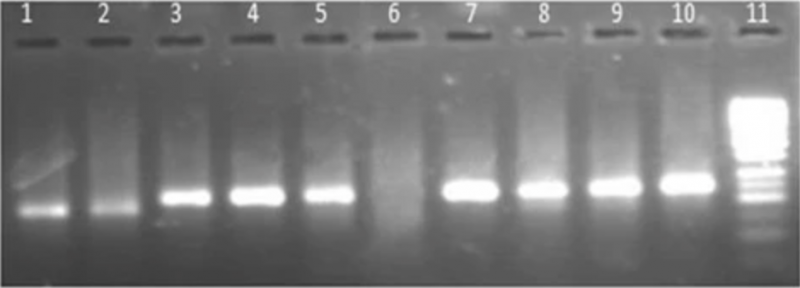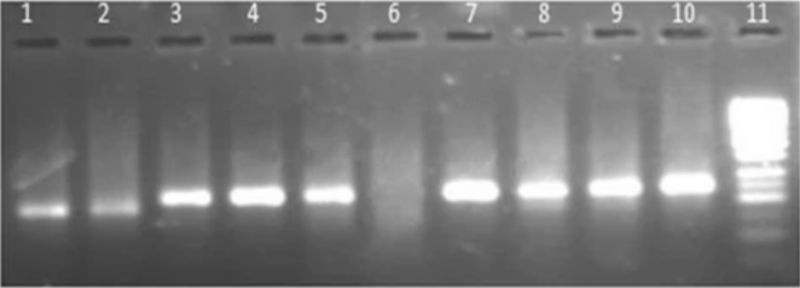Forum Replies Created
-
AuthorPosts
-
Hello Hope8,
Welcome to the forum.
Undetectable at 4 weeks is definitely on track!
You are correct that with GT 1a the benefits of adding Ribavirin to Harvoni are minimal. In the context of 24 weeks treatment there is, IMHO, unlikely to be any benefit.
On the topic of Ribavirin the recommended dose is 15mg/kg of body weight, but typically simplified as 1000mg/day for patients < 75kg and 1200mg/day for patients > 75kg. This is usually given as 2 doses. So, that means the dose you are taking is relatively low.
The half life of ribavirin is long so it takes about 21 days to get to its maximum. That means we need a few weeks to see how its going to land side effect wise. You have probably landed but, personally, I monitored the FBC/CBC of my ribavirin patients every 2 weeks. The monitored related to the fact I have not used ribavirin for going on 2 years because… we just don’t need to and the treatment journey without it is generally much smoother.
Without knowing your pre-treatment status it’s hard to give specific advice but we do know:
For treatment naive patients with GT1a using only 8 weeks Harvoni is *almost* as good as 12 weeks
The results for GT1a with 12 weeks Harvoni are very good, with patients with cirrhosis or HCC being the only common exceptions
In ballpark terms for GT1a
8 weeks Harvoni => 90% cure
12 weeks Harvoni => 95% cure (+5%)
16 weeks Harvoni => 97.5% cure (+2.5%)
20 weeks Harvoni => 98.5% cure (+1%)
24 weeks Harvoni => 99% cure (+0.5%)The point here is that a) each extra 4 weeks treatment does add to treatment success rates; but b) there are diminishing returns in terms of extra cure rate.
Do you have any of your pre-treatment bloodwork and tests?
YMMV
Hi Sonja, than you for sharing this wonderful news!
Best wishes
James
YMMV
Hi Violet,
The Moderna vaccine available in Chemists is probably slightly better than Pfizer and probably easier to access. The main risks with mRNA vaccines are allergic reaction and myocarditis (almost all young people). The clotting risk with the AZ vaccine has been totally overblown in both the media and people’s minds.
Looking at my family, different family members have had all 3.
For Pfizer and Moderna (both mRNA vaccines) the duration of protection appears to relate to how long you wait between doses. In line with expectations a longer delay between doses (ie 6 weeks) is better than 3 weeks.
This fits with what we see with pretty much every other vaccine. Yes you can rush the dose schedule (with going on holidays being the common reason back in pre-covid days). The consequence of rushing the schedule is that the protection is not quite as good or quite as long lasting.
YMMV
Hi Violet,
Welcome back. Having cirrhosis is not an issue with respect to any of the vaccines.
Here’s why an exemption is a bad idea. In Israel last week. Of the new severely ill Covid-19 patients, per 100,000 people:
Not vaccinated: 6.4
2 x vaccinated: 1.62
3 x vaccinated: 0.28So if you are not vaccinated you are 4 x more likely to get severe disease than somebody who has had 2 doses. To date the 3 dose regime has only been given to the most vulnerable. Despite this, it still makes them 23x less likely to get severe disease.
I prefer those odds.
You may have noticed from the news that ~1000 NSW cases a day is coupled with ~10 deaths a day. So, in rough ballpark terms Covid-19 is 1:100 ie 1% fatal. While there is no such thing as a 100% safe vaccine rate the fatality rate from being vaccinated is in the order of 0.001% so, when you weigh up the risks…
Covid carries a 1:100 risk of a fatal outcome whereas the vaccines are 1:100,000.
Once vaccinated your risk of severe disease drops significantly, particularly with 3 doses.
We are all going to get Covid-19, it’s only a question of when. When we get it the risk looks much better fully vaccinated.
YMMV
Hi Perecarl,
Sorry for the delayed response. In my other life I founded a Telehealth company that I’ve just completed selling.
Anyway I would not expect you to be able to donate plasma. The presence of antibodies to HCV is one of the exclusion criteria. This is from the Red Cross in Australia but is representative of the policies around the world.
https://www.lifeblood.com.au/faq/eligibility/medical-conditions-and-procedures/hepatitis
Hepatitis C:
If you currently have or have ever had hepatitis C, you aren’t able to donate even if you completed successful treatment.One of the screening tests for hepatitis C tests for the hepatitis C antibody, which usually remains positive for life. Donations can’t be used if they test positive to any screening test for an infectious disease.
Don’t be disappointed though, because there are other ways you can help. You can spread the word about how blood saves lives on social media (find us @lifebloodau), register your intent to be an organ donor (if you’re 16 or over), or support the great humanitarian work of the Australian Red Cross.
YMMV
Hi Sven,
While laboratories tend to report a single genotype, about 10% of people are probably infected with 2 genotypes:
https://www.ncbi.nlm.nih.gov/pmc/articles/PMC4296219/
https://www.ncbi.nlm.nih.gov/pmc/articles/PMC3205070/We have seen people treated for GT1a with Harvoni relapse with GT3 despite a negligible reinfection risk so presumably, they had both GT1a and GT3, and the Harvoni only cured the GT1a leaving the GT3 to flourish.
Here is an image of some actual genotype testing:

Lanes 1 and 2 are GT1. Lanes 3-5 and 7-10 are GT3. Lane 6 is negative. Lane 11 is the control.
Look carefully at lane 8 and notice that while GT3 is dominant there is a clear GT1 line below it. Some of the other GT3 lanes also suggest GT1 but lane 8 seems pretty clear. That result would be reported as GT3 but is really GT3/GT1
So, it is possible that somebody infected with 2 genotypes can pass on both, and that in the other person a different genotype is the dominant one.
Ledipasvir is not effective against GT2 or GT3 so, for a patient coinfected with GT1/GT2 or GT1/GT3 the Harvoni should cure the GT1 but there is only a 70% chance of curing the GT2 or GT3 (because Sofosbuvir alone has about a 70% cure rate for these).
YMMV
Hi Sven,
While laboratories tend to report a single genotype, about 10% of people are probably infected with 2 genotypes:
https://www.ncbi.nlm.nih.gov/pmc/articles/PMC4296219/
https://www.ncbi.nlm.nih.gov/pmc/articles/PMC3205070/We have seen people treated for GT1a with Harvoni relapse with GT3 despite a negligible reinfection risk so presumably, they had both GT1a and GT3, and the Harvoni only cured the GT1a leaving the GT3 to flourish.
Here is an image of some actual genotype testing:

Lanes 1 and 2 are GT1. Lanes 3-5 and 7-10 are GT3. Lane 6 is negative. Lane 11 is the control.
Look carefully at lane 8 and notice that while GT3 is dominant there is a clear GT1 line below it. Some of the other GT3 lanes also suggest GT1 but lane 8 seems pretty clear. That result would be reported as GT3 but is really GT3/GT1
So, it is possible that somebody infected with 2 genotypes can pass on both, and that in the other person a different genotype is the dominant one.
Ledipasvir is not effective against GT2 or GT3 so, for a patient coinfected with GT1/GT2 or GT1/GT3 the Harvoni should cure the GT1 but there is only a 70% chance of curing the GT2 or GT3 (because Sofosbuvir alone has about a 70% cure rate for these).
YMMV
Congratulations guero852004!
All the best for your Hep C free future.
Best Regards
James

YMMV
Hi Sven,
Sofosbuvir+Daclatasvir or Sofosbuvir+Velpatasvir both work on 2b
With cirrhosis Velpatasvir is preferred.
Maviret is also good but as yet there is no generic.
YMMV
Hello Gan,
The AFP result says it is unlikely you have liver cancer
The HCV RNA result of <10 says you do not have active hepatitis C and thus do not need treatment for hepatitis C.
From your other posts, I can see you report many classic hep C symptoms such as fatigue and brain fog. With an HCV RNA <10 we can not blame hepatitis C for these symptoms and should look for other causes such as hepatitis B, haemochromatosis, and the many other causes of liver problems.
YMMV
Hello Gan,
While it is possible treatment of your hep C may improve the hair situation the reliable benefits we see for patients with the fatigue, brain fog and confusion you report are that these almost always completely disappear.
The phrase “I have not felt this good for 20 years” is a very common sentiment after people have treated and been cured.
Best Wishes
James
YMMV
Hello Vladimir,
Thank you for your post and your kind words. I’m very glad to hear you’ve been cured.
As you mention, many people worry that it is not sensible to trust a website like FixHepC on the Internet. In many cases that is correct, but in this case it is not.
I wish you and your loved ones well in these troubled pandemic times.
Best Wishes
James
YMMV
Hello Sonja,
There are almost no good reasons not to get vaccinated. All the vaccines that have made it to market are much safer than actually getting Covid.
To answer your question specifically fibrosis is not a reason to avoid vaccination.
In terms of waiting for better options, the options we have now are pretty much as good as it ever gets in terms of safety and efficacy.
No vaccine is 100% safe and 100% effective but then again, COVID is 2-3% fatal and close to 100% of people will get it (in the absence of a vaccination).
YMMV
Hi Barry,
Thanks for the update! Better this side of the pavement, at least that’s what I reckon.
Take care mate, and if you can’t be good, don’t get caught.
Best Regards
James
YMMV
-
AuthorPosts
